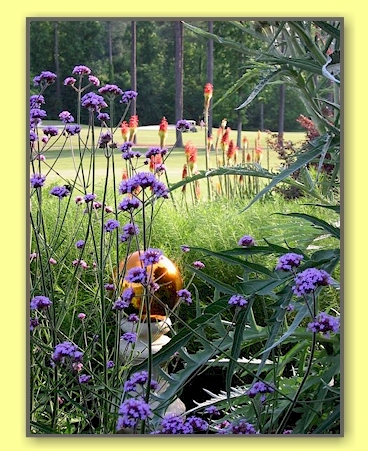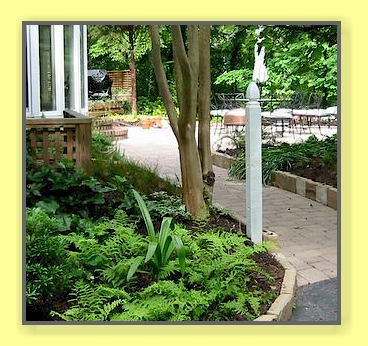|
|
Sustainable Gardening
First,- do no harm. (Hippocrates) Our experienced horticulturists design gardens following two
concepts: first, we avoid harm, and second, by phasing your program in over a 3 year period. A few examples of how these apply are: we preserve existing trees whenever possible: we help you choose and install the right plants in the right places,
so that they survive, and prosper (we pride ourselves on our high survival rate): we assist in implementing irrigation, watering, and fertilization
practices that restore your soil: and we help you choose weed and pest control practices that avoid broad, indiscriminate killing,- just to name a few! |
|


|
Our Recommendations Include:Phase In Your Program Over At Least a 3-Year Period:
"The first year sleeps, second year creeps, third year leaps!"
Gradual implementation of an environmentally friendly landscape is the ideal approach to a successful program. It allows persistent chemicals time to leach out, permits beneficial
insects to return to the landscape, and enables a smoother transition into an organic approach with less possibility of economic damage. "Organic and Natural" Versus
"Environmentally Friendly":
As part of our ongoing education process, one of the things we teach our clients is that the term "organic" does not necessarily mean environmentally friendly. We encourage you to educate yourself by reading labels, understanding active ingredients, safety levels, and toxicity to fish, bees, and
wildlife. We encourage you to make sure you use target specific treatments, and avoid any broad based preventative applications of pesticides. When you use broad, indiscriminate
pesticides, chances are you are eliminating the very predators that will help you control your pests,- naturally. It's all part of our sustainable education process!
Introduce Innovative Treatments
On A Small Scale:
This keeps your failures small. After trial, expand. Use the process to identify problems at their root cause, not merely by their superficial symptoms. Try out new bioproducts regularly. If you find effective treatments ,
continue to experiment and diversify.
Educate Yourself:
Try and look at plant problems as opportunities to solve puzzles and learn from them. Research pests, treatments, and products thoroughly. Train yourself to find solutions.
Keep up to date reference materials readily available.
|

